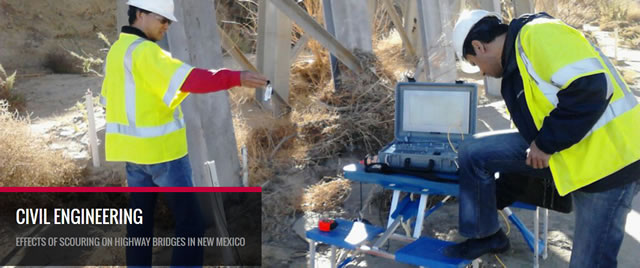
Civil Engineering ETDs
Publication Date
Spring 5-13-2023
Abstract
The rapid weakening of snow layers that locally accumulate infiltrating liquid water is a well-known mechanism for wet slab avalanche formation. To quantify this process and improve the prediction of these destructive avalanches, a blade hardness gauge (BHG, a.k.a thin blade penetrometer) and SLF snow sensor were used to take 349 targeted paired measurements of strength and LWC, respectively, in the snow above 19 artificially wetted capillary barriers. Using a multiple regression analysis, we develop an expression for the blade hardness of manually wetted snow as a function of LWC, crystal form, and blade hardness prior to wetting. To understand these results in terms of a common measure of snow strength, we also performed a dry snow comparison of the BHG and a shear frame. The two instruments are highly linearly correlated, allowing us to interpret our regression in terms of shear strength when compressive stress is low.
Keywords
wet snow, avalanches, snow mechanics
Document Type
Thesis
First Committee Member (Chair)
Dr. Mark Stone
Second Committee Member
Dr. Ryan Webb
Third Committee Member
Dr. John Stormont
Fourth Committee Member
Dr. Jordy Hendrikx
Recommended Citation
Schlumpf, Mikael. "Strength as a Function of Liquid Water Content in Different Snow Types - Results from field experiments using a blade hardness gauge." (2023). https://digitalrepository.unm.edu/ce_etds/297
